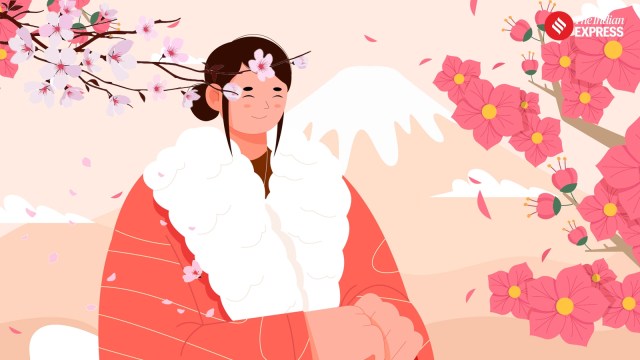📣 For more lifestyle news, click here to join our WhatsApp Channel and also follow us on Instagram
This Japanese philosophy teaches us it’s okay to not be an expert at everything
In a time when we’re constantly asked to know more, do more, and be more — Shoshin offers something gentler. A return to wonder. A pause. A small act of quiet courage.
 Shoshin, the Japanese Zen principle of “beginner’s mind,” teaches us to let go of ego and stay open to learning, growth, and curiosity (Source: Freepik)
Shoshin, the Japanese Zen principle of “beginner’s mind,” teaches us to let go of ego and stay open to learning, growth, and curiosity (Source: Freepik)There’s something quietly powerful about admitting you don’t know everything — and being okay with it. In a world that’s constantly pushing us to be experts, to always be “on,” the Japanese philosophy of Shoshin feels like a breath of fresh air.
At its core, Shoshin means “beginner’s mind.” It’s the idea of approaching life — every situation, conversation, or challenge — as if you’re seeing it for the first time. Even if you’ve done it a thousand times before. Even if you’re considered the best in the room.
It’s not about pretending to be clueless or denying what you’ve already learned. It’s about choosing curiosity over ego. Presence over performance.
As Zen teacher Shunryu Suzuki once said, “In the beginner’s mind, there are many possibilities; in the expert’s, there are few.”
And maybe that’s the secret: the more you “know,” the more you risk narrowing your view. With Shoshin, you don’t shut out what’s unfamiliar. You lean into it.
Why Shoshin matters in real life
Let’s be honest — most of us are juggling a lot. There’s pressure to keep up, to sound smart, to look like we’ve got it all together. But that pressure can slowly chip away at the joy of learning. It can make us defensive. Closed off. Tired.
Shoshin gently reminds us: you’re allowed to not know. In fact, that’s where all the good stuff begins.
Whether you’re trying something new at work, having a tricky conversation, or just picking up a hobby you abandoned years ago — this mindset helps. It removes the fear of “getting it wrong.” You stop trying to prove yourself and start actually discovering things again.
When you’re not stuck in the role of “expert,” you’re more likely to stay open, adaptable, and less reactive — all of which are useful in our relationships too.
 It’s also about resisting the urge to shrink into silence when you feel out of your depth. Shoshin doesn’t make you smaller. It helps you stay rooted in learning — without shame. (Source: Freepik)
It’s also about resisting the urge to shrink into silence when you feel out of your depth. Shoshin doesn’t make you smaller. It helps you stay rooted in learning — without shame. (Source: Freepik)
What it looks like in practice
Shoshin isn’t a grand lifestyle overhaul. It’s subtle. Small. It looks like…
- Asking questions, even the “obvious” ones
- Pausing before reacting, just to listen fully
- Trying something new without expecting to be perfect
- Admitting when you don’t know something — and staying curious about it
It’s also about resisting the urge to shrink into silence when you feel out of your depth. Shoshin doesn’t make you smaller. It helps you stay rooted in learning — without shame.
And it’s not just about personal growth. Teams that operate with beginner’s mind tend to collaborate better. Leaders who stay curious, rather than assuming they always have the answer, create room for innovation and honesty. In friendships and families, it invites deeper listening, less judgment, and more meaningful connection.
Choosing beginner’s mind in today’s fast world can feel counterintuitive. But maybe that’s why it matters so much. So the next time you feel the urge to “know it all,” consider letting go. Ask the question. Stay curious. Let yourself be a beginner again.
📣 For more lifestyle news, click here to join our WhatsApp Channel and also follow us on Instagram



- 01
- 02
- 03
- 04
- 05
























